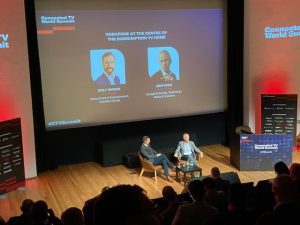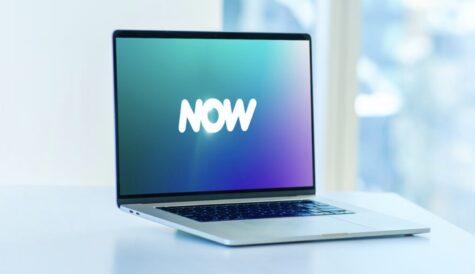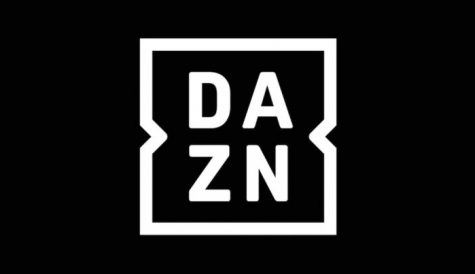Vodafone ‘very committed’ to TV business, says entertainment chief
 Vodafone remains “very committed” to the TV business and has spent the last couple of years making significant acquisitions in the fixed business and TV, according to Rolf Wierig, global head of entertainment, Vodafone Group.
Vodafone remains “very committed” to the TV business and has spent the last couple of years making significant acquisitions in the fixed business and TV, according to Rolf Wierig, global head of entertainment, Vodafone Group.
Interviewed on stage at the Connected TV World Summit in London today, Wierig said that Vodafone had taken a decision two years ago to set up the entertainment unit that he leads and that it had developed a “more holistic” approach to entertainment, harmonising TV-related initiatives.
“We have set up an organisation and a clear plan for the future,” he said.
Germany remains the most important market for Vodafone, but in terms of Vodafone TV, Spain and Portugal are also important.
He said that the TV business had been deployed across 10 markets and was growing.
Vodafone’s “huge customer base” of connected consumers meant that it had been able to focus on extending its connectivity products into new product areas including entertainment.
“One of the key elements we bring is being complementary to all these content services out there,” he said. Vodafone could provide access to its base, its strong marketing and sales resources and could work with the direct-to-consumer services to extend their reach.
He said Vodafone was not just a ‘super-aggregator’ of apps. “There is still across Europe a 60% linear viewership share and our rolse is to bring relevant content to our Vodafone homes… a best of breed offering of linear and OTT services,” he said.
Wierig said that Vodafone’s strategy was focused on aggregation and “bringing everyone on board” including pay TV services as well as OTT streamers.
He said it was important to create “a unified experience” that made sense to the consumer, including unified search and recommendation.
Wierig said that there were challenges in getting streamers to open up to service providers, but that Vodafone could offer recommendation across many apps by convincing players that its offering was complementary to their own.
Vodafone could offer hard bundling with billing and customer care provided by Vodafone, he said. He said bundling was “very important” to Vodafone, offering the ability to discount bundled offers but also to enable further growth of OTT services as the market matures.
“The entire industry needs to get more creative. OTT service stacking could be one element,” he said.
Convincing customers to “further top up” their OTT offerings could be facilitated by more flexibility, with a lower entry price that could be facilitated by ad-supported tiers, he said.
While aggregation and partnerships with content providers are central to its strategy, Wierig said that Vodafone was “not that much” focused on acquiring exclusive rights such as sports, as it has done in the past in markets such as Spain. He sad that aggregating rather than focusing on acquiring rights helped “de-risk” the business.
“In most of our markets there is no specific need for exclusivity,” he said.
However, sometimes exclusive partnerships could work, such as Vodafone’s agreement with Warner Bros. Discovery for HBO Max in Spain and Portugal, he said.



